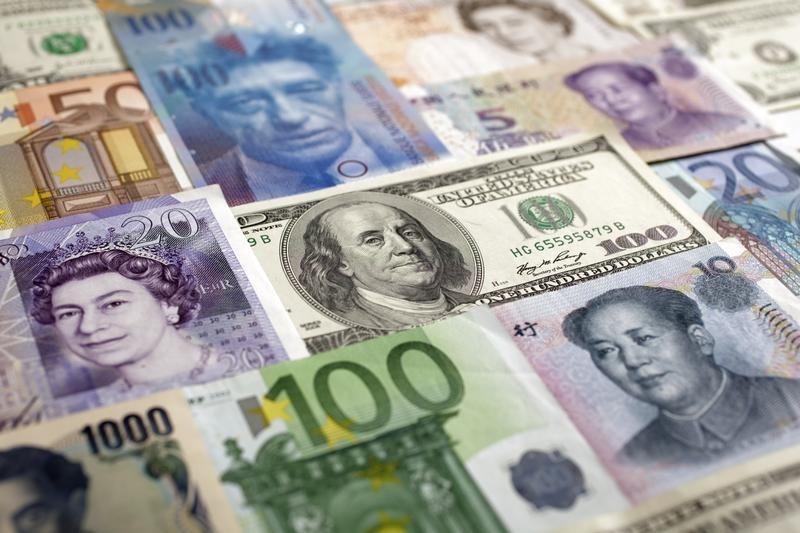(Bloomberg) -- Foreign-exchange traders are feeling a bit on edge about Canada.
While voters prepare to render their verdict on Prime Minister Justin Trudeau’s government at the polls on Monday, the market is taking a distinctly downbeat view of the local currency, despite recent buoyancy in resource prices. Indeed the rise in global commodity costs could even become a headwind for the country’s economy rather than a tailwind as concerns about domestic inflation take center stage for citizens, politicians and central bankers alike.
The loonie, as it is affectionately dubbed because of the bird that graces Canada’s coinage, has been one of the worst-performing developed-market currencies in the second half of this year. After outstripping all its Group-of-10 counterparts in the first six months of 2021, it’s fallen 2.9% since June 30 through last week’s close. And activity within derivative markets suggests there could be more pain to come for the currency even as the Bank of Canada starts to pave the way for monetary policy tightening.
“It’s been pretty clear over the last week or two that the CAD is just not responding to some of the positive fundamental impulses in the way we would have expected,” said Shaun Osborne, chief currency strategist at Scotiabank. “I suspect the CAD may continue to struggle a little bit.”
In the options market, the right to sell the Canadian dollar versus the greenback in three months’ time has been rising in cost relative to the price of purchase rights. So-called risk reversals, which compare the costs of these puts and calls, this month reached levels unseen since June 2020, suggesting increased interest in hedging against Canadian dollar losses.
Data from CME Group (NASDAQ:CME) shows that traders have built a notional portfolio of more than $50 billion in low-delta Canadian dollar put options at strikes of C$1.33 per greenback, a further sign of concern about loonie weakening from current levels near C$1.28. One- and three-month implied volatility measures, meanwhile, have ticked up in recent weeks, suggesting that some investors are bracing for an increase in activity.
Positioning data from the Commodity Futures Trading Commission also shows a dialing back of Canadian dollar bullishness. While speculators maintain a net long position, it has fallen notably from its recent peak in mid July, while asset managers are also holding smaller bullish positions than they were a couple of months ago.
All this comes even as the Bloomberg Commodity Index has risen 3.2% since June 30 through last week, although crude oil is around 2% lower.
Opinion polls in Canada have indicated that Trudeau’s Liberals are in a tough fight to remain in power, despite promises to boost spending. While elections have not typically been a source of major investor disquiet when it comes to Canada, there are a number of elements to this year’s battle between Trudeau and Conservative challenger Erin O’Toole which could potentially sway markets.
The biggest risk will be if a minority government is formed and is unable to make any headway on policy decisions, potentially triggering another election in the not-too-distant future, according to Toronto-Dominion Bank analyst Mark McCormick (NYSE:MKC). This could lead to elevated volatility in the short-run, he said.
Trudeau Holds Slight Election Edge, With Help From His Opponents
Another major potential impact is on the monetary policy backdrop. The central bank’s five-year inflation targeting mandate is up for renewal this year and there is a chance that Bank of Canada Governor Tiff Macklem might request more flexibility, so whoever is in power could hold the key to that.
O’Toole has said he favors the inflation target at 2% as regular people struggle to make ends meet. Trudeau said that families, not monetary policy, would be his government’s top economic priority and wants to continue with increased stimulus.
New data released Wednesday showed year-on-year consumer-price gains accelerated to 4.1% in August, the fastest inflation since 2003 and the fifth consecutive reading above the Bank of Canada’s 3% cap.That landscape of accelerating inflation will, of course, be critical for monetary policy: the BOC boss said earlier this month he intends to scale back bond purchases as the economy recovers, leaving open the possibility for higher rates if consumer costs keep on rising. But it will also potentially have an effect on the election result itself, the kinds of fiscal policy that emerge in its wake and the eventual decision surrounding the BOC mandate.
“Election outcomes can have an impact on fiscal policy which reverberates into monetary policy or vice-versa,” said Tom Nakamura, a portfolio manager at AGF Management. “There is some concern about the election.”
Looming over all this is the specter of the U.S. monetary policy decision this Wednesday. Any notable signals from the Federal Reserve about its potential timeline for asset-purchase tapering or interest-rate hikes are likely to have a significant impact on risk assets around the world, including the Canadian dollar and the commodities complex.
“It’s clear the Fed is going to start the taper process this year and at the same time we reached peak BOC hawkishness,” said McCormick. “The biggest driver of loonie now is the outlook for the dollar and global risk sentiment.”
